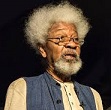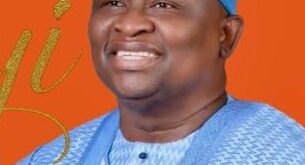Renowned Nigerian Nobel Laureate, Prof. Wole Soyinka has criticized President Bola Tinubu’s declaration of a state of emergency in Rivers State, arguing that the Nigerian constitution grants excessive power to the President.
President Tinubu’s recent declaration of a state of emergency followed unresolved political unrest in Rivers State.
While some have acknowledged the constitutional backing of the move, the President’s suspension of Governor Siminalayi Fubara, his deputy, and members of the legislative arm has triggered widespread public outrage.
Prominent figures have condemned the suspension as unconstitutional, describing it as an overreach of presidential authority.
In an interview with The Africa Report, Prof. Soyinka argued that the state of emergency contradicts the federalist principles upon which Nigeria’s system of governance is based.
“The government is over-centralized. The debate will go on whether this (state of emergency) was, in the first place, a wise decision, but in terms of fundamental principles, I believe that this is against the federal spirit of association,” Soyinka stated.
He maintained that the current constitutional framework concentrates excessive power in the President, which he sees as unsuitable for Nigeria’s pluralistic society.
“I find that the constitution has put too much power in the hands of the President. The system we are operating right now is not the best for a pluralistic society like ours. That is a fundamental principle I have always held.”
Soyinka further called for an urgent constitutional amendment to ensure that Nigeria operates as a true federal system.
“If it is constitutionally right, then I think it is about time we sat down and amended the constitution to make sure that it operates as a genuine federal entity,” he said.
He emphasized the importance of protecting the federal spirit of association, stating that the current structure undermines the autonomy of state governments.
“The federal spirit of association is a cardinal principle… right now, in principle; this action is against the federal imperative.”
 Startrend International Magazine For Your Latest News And Entertainment Gists
Startrend International Magazine For Your Latest News And Entertainment Gists





